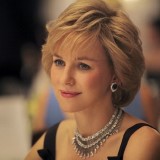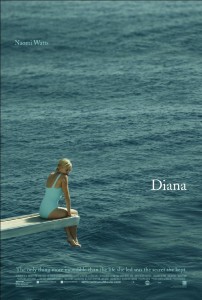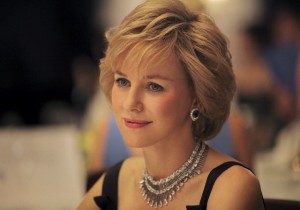
Movie Review: Diana
What We Liked
What We Didn't Like
Often in the world of movies, the hardest stories to tell are the ones based on reality. It’s even harder when there’s no access to the main people involved, leaving a tale built on hearsay and embellishments. And when the movie is about “the most famous woman in the world,” there is almost no way to do her justice. So instead, the film Diana does the impossible – it turns the world’s favorite princess into a little more than a spoiled, selfish brat. The problem is, I don’t think that was director Oliver Hirschbiegel’s intention.

It’s a beautiful tragic romance, aiming to tug at heartstrings and tear ducts. But there’s little basis in reality. Based on book, Diana, Her Last Love, by Kate Snell, it’s founded on little more than inquest testimony, third-party information, and tabloid headlines. The real Dr. Khan refused to participate in either the book or the film. And because of this, there are far too many moments throughout the film where the suspension of disbelief is strained to the breaking point. Hasnat forgives Diana after a fight because she basically broke into his apartment when he wasn’t at home and cleaned it for him. I really don’t know what’s harder to accept here – that she cleaned up after him, or that’s the reason she was forgiven.
Watts does her best to try to capture the essence of Diana, but doesn’t quite get there. Her hair is nearly right, her voice less so, and her mannerisms look practiced and stiff. The real princess had a way of often tipping her head, causing her to look humble and natural. Watts’ imitation of that same pose just makes her look like she slept funny last night and can’t quite straighten her neck. Yet there are brief moments where the reasons this woman was so beloved actually come across – in a crowd of people in Italy, Diana stops to talk to a blind man who is overjoyed when she brings his hand to her face. It’s quiet, it’s not plot-driven, and it’s one of the few moments when Watts actually shines.
There’s little to no chemistry between her and Andrews, but he does a pretty decent job of a man torn between his life and the woman he loves. His best scenes are the ones without Watts, which is rather not good when your movie is a love story. Which is the biggest problem, by far. The filmmakers focused the whole film on entirely the wrong thing. Diana was known as a philanthropist and humanitarian, devoting time and money to causes that were important to her. She was also a doting mother who loved spending time with her boys as much as she possibly could.
But we see almost none of this. Her Angola trip to see the damage caused by landmines only gets screen time so Hasnat can give Diana advice on dealing with her detractors. Her children are hardly mentioned, and we only see them briefly from a distance. There are facets and levels to the real Diana that are either glossed over or forgotten so more attention can be paid to this one single relationship. And when her relationship with Dodi Fayed is depicted as nothing more than a ruse to get Hasnat to call her, the people’s princess appears to be nothing more than a spiteful child acting out. At one point she even petulantly says, “I’m a princess and I get what I want.” That’s not the Diana the world fell in love with.
Throughout the film, the paparazzi pursue her simply to capitalize on and exploit her image and her name. Diana wants to be a loving tribute to the late princess, but instead, treats her exactly the same – without respect and without integrity. She wasn’t perfect, but her memory certainly deserves better than this.



